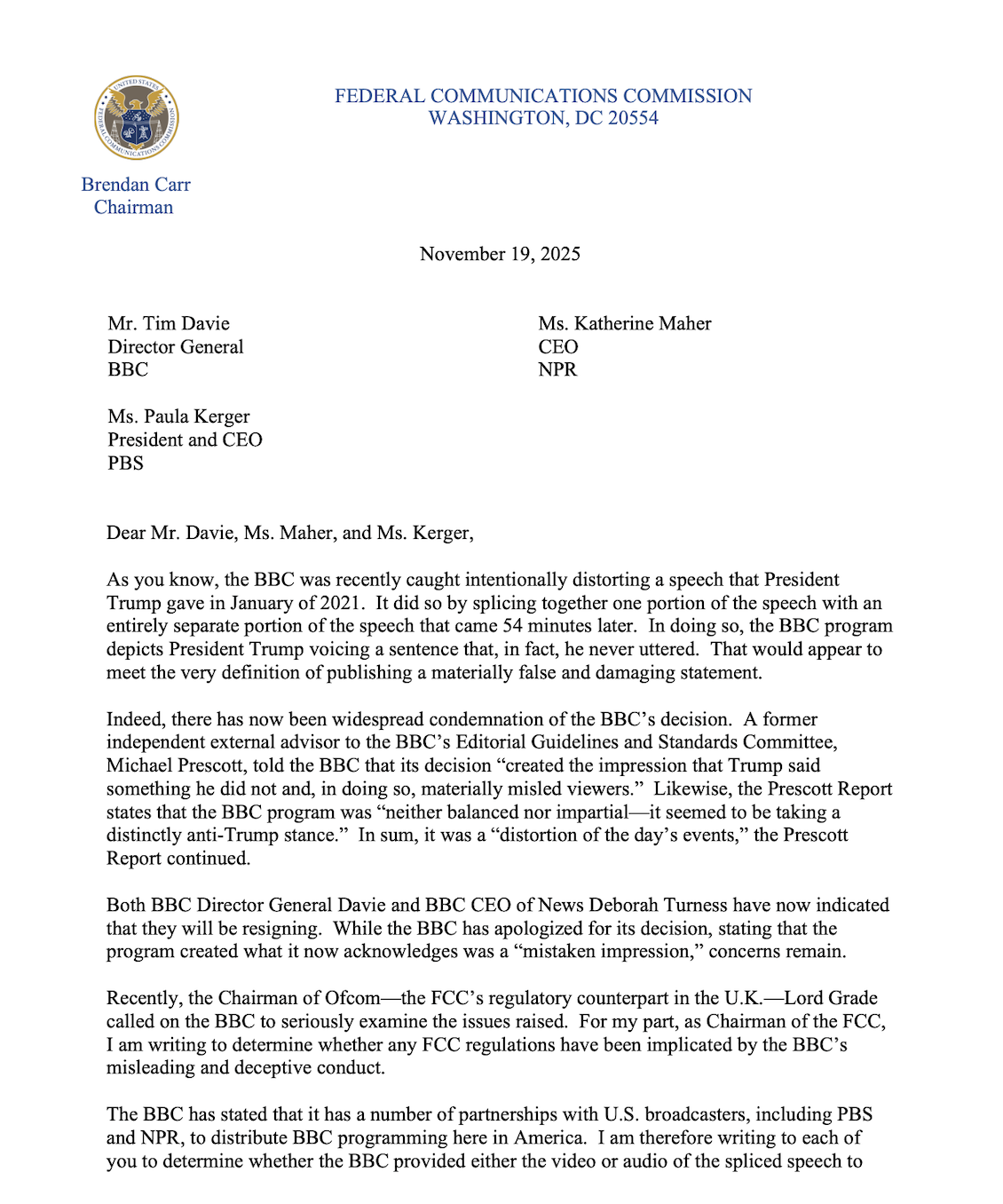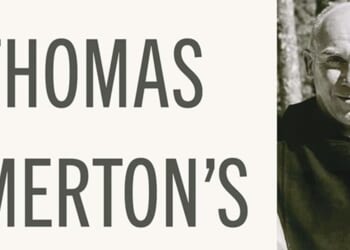Earlier today, Federal Communications Commission Chairman Brendan Carr fired a shot across the bow of the Public Broadcasting System, National Public Radio and the BBC. In a letter addressed to the leaders of the three organizations, which is reproduced below, Carr recited the fact that the BBC broadcast a false or misleading story on a speech given by President Trump in January 2021:
As you know, the BBC was recently caught intentionally distorting a speech that President Trump gave in January of 2021. It did so by splicing together one portion of the speech with an entirely separate portion of the speech that came 54 minutes later. In doing so, the BBC program depicts President Trump voicing a sentence that, in fact, he never uttered. That would appear to meet the very definition of publishing a materially false and damaging statement.
Carr went on to note that the BBC’s actions have been widely condemned, and the BBC Director General to whom he addressed his letter has announced his retirement.
What’s the point? The FCC has no jurisdiction over the BBC, which publishes news in the U.S. but does not broadcast here. The FCC does, however, have jurisdiction over PBS and NPR:
For my part, as Chairman of the FCC, I am writing to determine whether any FCC regulations have been implicated by the BBC’s misleading and deceptive conduct.
The BBC has stated that it has a number of partnerships with U.S. broadcasters, including PBS and NPR, to distribute BBC programming here in America. I am therefore writing to each of you to determine whether the BBC provided either the video or audio of the spliced speech to NPR, PBS, or any other broadcaster regulated by the FCC for airing in the U.S. If so, please provide the FCC with transcripts and video of any such broadcasts of the relevant program.
Did either PBS or NPR air the BBC story on Trump and January 6? I don’t know, but presumably the FCC does. The administration is hostile to both of those organizations, and properly so. While Congress has cut off funding of the Corporation for Public Broadcasting, which is shutting down, PBS and NPR still exist, although with reduced resources. They are subject to FCC jurisdiction:
As you may know, broadcasters regulated by the FCC have a legal obligation to operate in the public interest. Those public interest requirements include prohibitions on news distortion and broadcast hoax. After all, the FCC has stated that “rigging or slanting the news is a most heinous act against the public interest.” I am committed to holding broadcasters accountable to their public interest obligations, and your prompt response will help aid me in that effort.
“Rigging or slanting the news” has been, for many years, the raison d’être of both NPR and PBS. If either of those organizations re-broadcast the discredited BBC story, it could provide leverage against them. But is it really in the cards that the FCC might try to pull the broadcast licenses of NPR and PBS? I seriously doubt it, although President Trump has mused out loud about terminating broadcast licenses on several occasions, most recently a day or two ago with regard to ABC. Be that as it may, I think it is good, at a minimum, to see the administration stripping the veneer of respectability from two corrupt organizations.



















